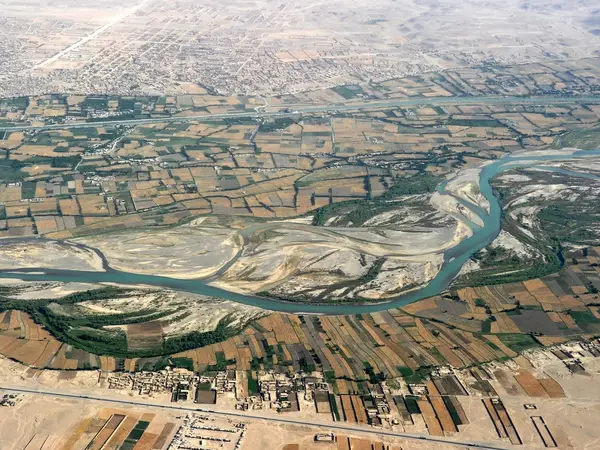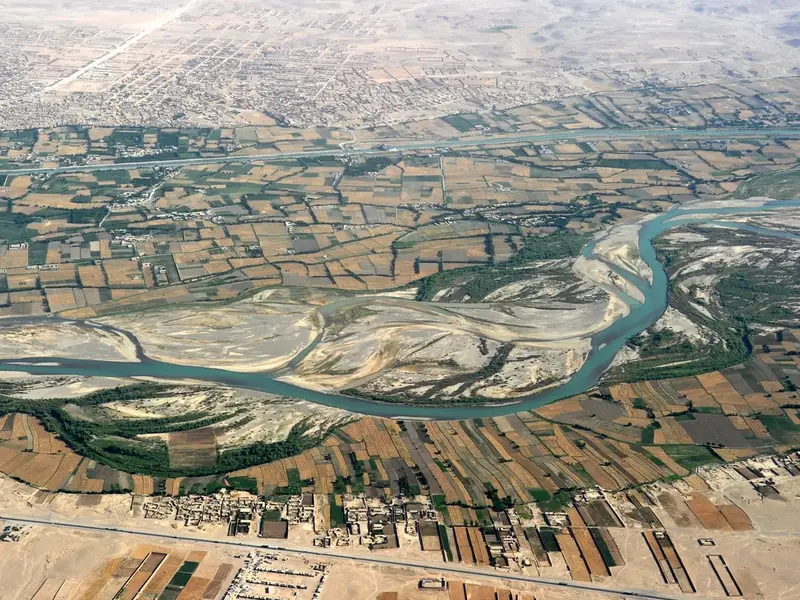An Iranian parliamentary delegation has visited Kabul to address the water crisis in Sistan and Baluchestan stemming from the Taliban's Helmand River flow obstruction.
During their visit to Afghanistan, the delegation met with the Taliban's Foreign Minister, to address the problem of lack of proper water sharing from the river as well as additional security issues. The delegation said that Iran is willing to share its "various experiences" with the Taliban.
According to the Taliban's Ministry of Foreign Affairs, the seven-member delegation, led by Javad Karimi-Qoddousi, met with Amir Khan Muttaqi, the Acting Foreign Minister of the Afghan Interim Administration.
Hafiz Zia Ahmad, the spokesperson for Afghanistan's Ministry of Foreign Affairs, stated that in the meeting, both sides engaged in detailed discussions on topics including "security, combating narcotics, preventing smuggling, border protection, and trade."
Iran says that the Taliban have restricted water flow from the Helmand River to Iran's parched eastern regions, but this accusation is denied by the Taliban.
A particular point of contention between the Iranian officials and the Taliban surround the crossing of hundreds of thousands of Afghan refugees across the borders, and the increase in cultivation and transit of narcotics.
These differences led to clashes between Iranian border forces and the Taliban in a border outpost area in the Zabol border region in late May, resulting in casualties among Iranian border guards. However, Iran's Foreign Minister stated that the actions of the Taliban forces in this conflict were "unjustified."
Some members of the Iranian parliament, including Ahmad Naderi, a representative, had previously referred to the Taliban as "one of the authentic movements of the region with a Pashtun ethnic background" before their return to power, emphasizing that "collaboration with the Taliban could lead to the expansion of stability in Afghanistan and prevent the infiltration of groups like ISIS."

